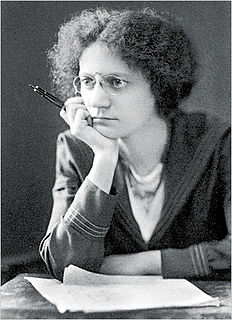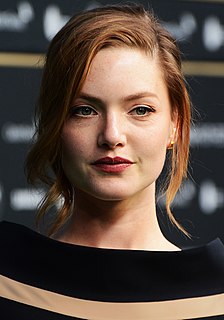A Quote by George Saunders
Later, I went one step further, by putting in some invented "historical" bits [into the Lincoln in the Bardo]. And reading those alongside the actual historical bits was like looking into a sort of a painful mirror, because "my" parts were so show-offy at first. They stood out because they were so flamboyant.
Related Quotes
The hardest bits of my book to read were the easiest bits to write because they were the most immediate. Probably because I had never stopped thinking about them on some level. Those bits I was just channelling and those were the most exciting writing days. The bits I found harder were the bits that happen in between, you know, the rest of living. There were whole years, whole houses, that I just got rid of.
I had to go in and do the work of toning [invented "historical" bits] down in order to make them fit [in Lincoln in the Bardo]. It's like if you're an actor and you're always overacting, well, you're a bad actor. But if you're an actor who subdues yourself to the extent that's necessary, then you're really acting.
There was one sequence of days [making Lincoln in the Bardo] when I had halfway decided to use the historical nuggets, but I wasn't quite sure it would work. I'd be in my room for six or seven hours, cutting up bits of paper with quotes and arranging them on the floor, with this little voice in my head saying, "Hey, this isn't writing!" But at the end of that day, I felt that the resulting section was doing important emotional work
What was fun for me with this book [Lincoln in the Bardo] was to start out with the principle that went, "We're going to fight every day to make this not a novel; make it too short to be a novel." And then with that principle in place, the book sort of starts to say, "Okay, but I really need this. I really need some historical nuggets." And you're like, "All right, but keep it under control."
When you're on stage performing stand-up, things only happen one time. I've done bits where I improv a joke, and people are dying. The next show, I try to repeat it, I can't do it. Because with the first audience that was our moment. It can't happen the same way again. We were all there: a certain type of people were at that show and we all got it.
At first he who invented any art that went beyond the common perceptions of man was naturally admired by men, not only because there was something useful in the inventions, but because he was thought wise and superior to the rest. But as more arts were invented, and some were directed to the necessities of life, others to its recreation, the inventors of the latter were always regarded as wiser than the inventors of the former, because their branches of knowledge did not aim at utility.


































